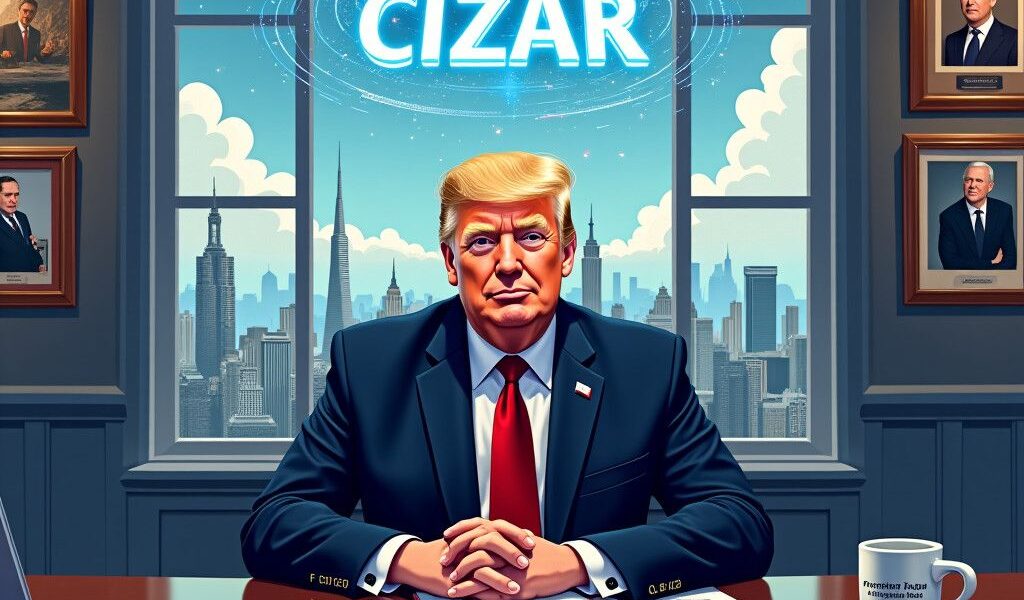Trump’s Consideration for an AI Czar: What It Means for Digital Policy
In a rapidly transforming technological landscape, the question of who leads our digital policy has taken center stage. Recently, discussions have emerged regarding the potential establishment of an AI czar position under Donald Trump’s administration. This move not only signals a serious consideration of the implications of artificial intelligence in governance but also raises questions about how we will regulate this powerful technology.
The rise of AI poses both tremendous opportunities and profound challenges. For instance, AI tools enhance capabilities in various sectors, including health care, finance, and e-commerce. However, the consequences of poorly managed AI can lead to issues such as bias, privacy invasion, and job displacement. This dual nature of artificial intelligence makes it crucial that its deployment is overseen by a knowledgeable individual or team.
One key figure likely to play a significant role in shaping this discourse is Elon Musk. As the CEO of Tesla and a prominent advocate for AI safety, Musk’s influence in technology circles is substantial. His previous warnings about AI development have underscored the need for proactive regulatory approaches. Despite not being a candidate for the AI czar position, Musk’s input could be invaluable in dialogues surrounding AI ethics and safety.
From a digital marketing and e-commerce perspective, the potential AI czar’s influence could reshape industry practices. For example, businesses are increasingly using AI to enhance customer experiences through personalized marketing strategies. As algorithms dictate what consumers see, the need for transparency about how data is used becomes apparent. If the AI czar’s role includes developing ethical guidelines for AI use in advertising, it could lead to more responsible practices that prioritize consumer welfare.
Consider the case of targeted advertising. Algorithms often analyze user data to serve personalized ads, which raises significant concerns about privacy and data security. An AI czar could advocate for clearer regulations on data usage, benefiting consumers by fostering transparency. For instance, giant firms like Facebook and Google have faced scrutiny over how they handle user data. Stronger regulations could lead to more responsible data practices, potentially changing the way these companies approach digital marketing.
Another essential area that the AI czar could influence is the automation of jobs. As companies increasingly adopt AI tools, there’s a palpable fear that many jobs, particularly in retail and service industries, may become obsolete. A proactive AI czar could prioritize workforce training initiatives to help workers transition into new roles. For instance, retraining programs could focus on equipping employees with skills relevant in an AI-driven economy, ensuring that technological advancement does not come at the expense of human employment.
Furthermore, enhancing cybersecurity measures in an AI-centric world will be paramount. The rise of AI also presents new vulnerabilities. Hackers can utilize AI to execute more sophisticated attacks, posing threats to businesses and consumers alike. An effective AI czar would need to prioritize the development of security frameworks to mitigate such risks. By collaborating with tech companies, the government can help establish protocols that incorporate AI into cybersecurity strategies, keeping user data more secure.
Internationally, the role of an AI czar could also aid in aligning the U.S. with global standards. As nations worldwide grapple with the implications of AI, collaboration and standardization efforts are crucial. For instance, the European Union has already introduced regulatory frameworks aimed at governing AI ethics and transparency. An AI czar in the U.S. position could potentially engage with other countries to develop international guidelines, thereby fostering cooperative approaches to AI governance.
Despite the potential benefits, the consideration of an AI czar also faces skepticism. Critics may argue that establishing such a position could lead to bureaucratic red tapes, slowing down innovation. Balancing regulation with the need for rapid technological advancement is a delicate act, and successful implementation will require a nuanced understanding of both technology and market dynamics.
In conclusion, the potential establishment of an AI czar under Donald Trump represents a pivotal moment for policies surrounding artificial intelligence. With the right leadership, this position could guide ethical practices and ensure that AI technology develops in ways that empower both consumers and society. The intersection of technology and policy continues to shape our digital landscape, highlighting the vital need for informed governance in this age of rapid innovation.








